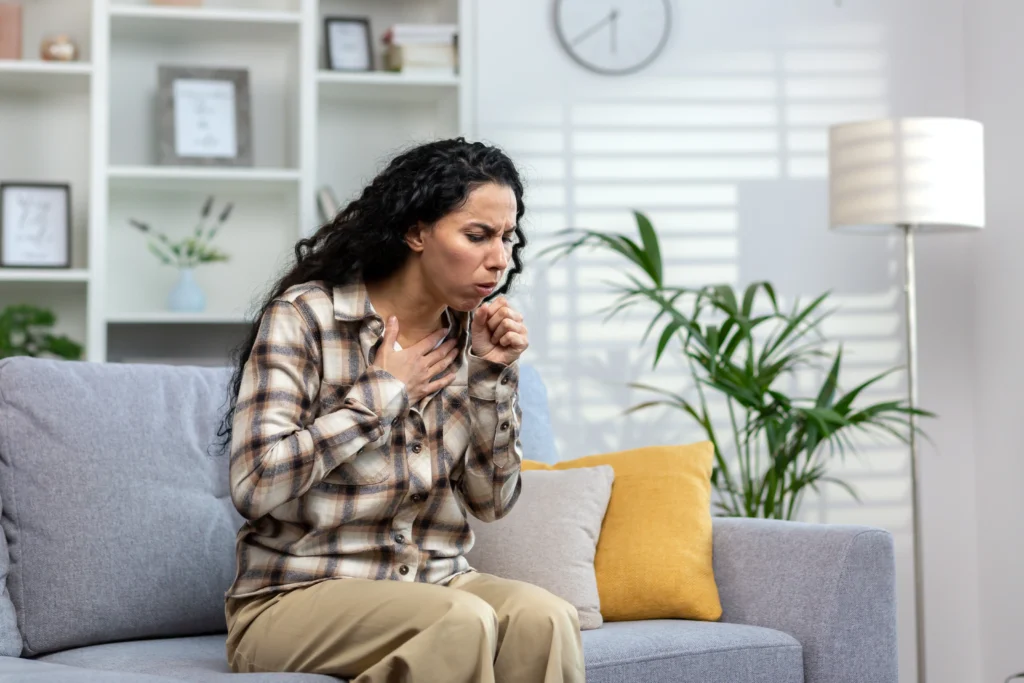It’s easy to mix up acid reflux and heartburn. After all, they often feel the same. But they are not the same thing. Let’s break it down in a simple way so you know what’s going on and when to get help.
What Is Acid Reflux?
Acid reflux happens when stomach acid moves up into your food pipe (called the esophagus). This can cause a burning feeling in your chest or throat. It can also leave a sour taste in your mouth.
According to the American College of Gastroenterology, over 60 million Americans experience acid reflux at least once a month. Some research indicates that ~15 million people deal with it every day.
Many people feel worse after eating a big meal or lying down. Spicy foods, coffee, or alcohol can make it worse. Even stress or being overweight can trigger symptoms.

What Is Heartburn?
Heartburn is a symptom of acid reflux. It’s that burning pain you feel in your chest, usually after eating. The pain can move up to your neck or throat.
Even though it feels like it starts in your heart, it has nothing to do with your heart. That’s why it’s called “heartburn,” but it’s all about your stomach acid going the wrong way.
What’s the Difference Between Heartburn and Acid Reflux?
Think of it this way:
Acid reflux is a digestive condition.
Heartburn is the feeling it causes.
You can have acid reflux without heartburn. And sometimes, you may feel heartburn from other causes, too. But most often, heartburn is a key sign that acid reflux is happening.
Other Symptoms to Watch For
Besides heartburn, acid reflux can cause:
- Trouble swallowing
- A constant sore throat
- Coughing or hoarseness
- A lump-in-the-throat feeling
These signs can show that the acid is irritating your throat or voice box.
When Should You See a Doctor?
Most people get acid reflux now and then. But if it happens two or more times a week, it may be something more serious called GERD (Gastroesophageal Reflux Disease).
You should see a doctor if:
- Your symptoms don’t get better with over-the-counter medicines
- You have trouble swallowing or chest pain
- You lose weight without trying
- Your voice sounds hoarse often
- Your symptoms wake you up at night
The American Gastroenterological Association says that GERD affects about 27% of the U.S. population. That’s a lot of people, so you’re not alone if you have it.
What Can Help?
There are ways to feel better. Try these tips:
- Eat smaller meals
- Don’t lie down right after eating
- Avoid trigger foods like fried or spicy dishes
- Wear loose-fitting clothes
- Raise the head of your bed
Also, if you smoke, quitting can help a lot. This is because smoking weakens the muscle that keeps acid in your stomach.
If lifestyle changes don’t work, your doctor may suggest medications or further tests. In rare cases, surgery might be needed.
Don’t Ignore Acid Reflux or Ongoing Heartburn
Acid reflux and heartburn are common, but they shouldn’t control your life. Knowing the difference helps you manage the symptoms better.
So, the next time you feel that burning chest pain, don’t just ignore it. As a first step, take note of how often it happens and what makes it worse. If needed, reach out to a doctor. Early diagnosis, as a result, can make a big difference.
If you are suffering from acid reflux or if you constantly feel heartburn, it is time to take action. Book an appointment with one of our digestive health specialists today. We’re here to help you feel better.